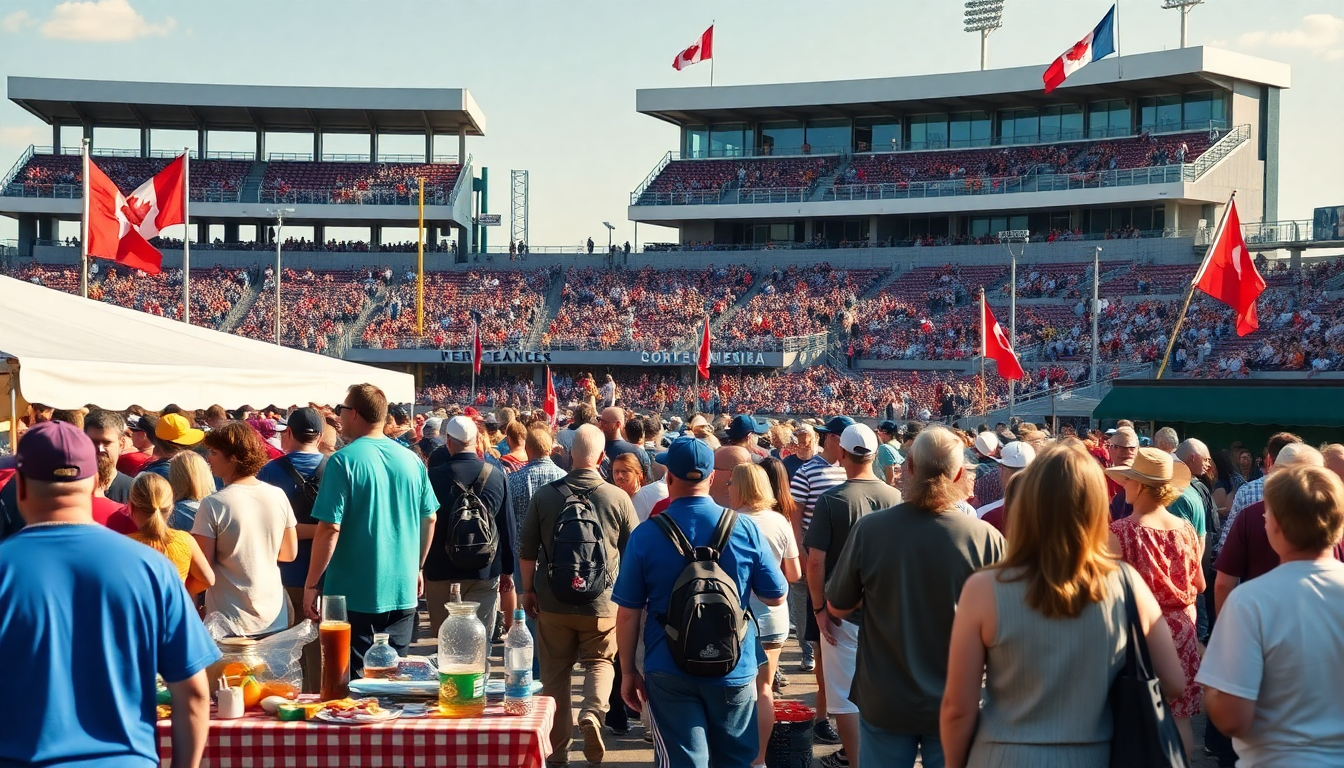Table of Contents
Sports events often ignite economic growth and foster community engagement, especially at the local level. Take, for instance, the recent success of two Saskatchewan teams reaching the final four in the Men’s National Baseball Championships. The economic and social benefits of such achievements are nothing short of profound.
Cities like Regina witness a vibrant surge in activity, where fans, tourists, and local businesses come together to celebrate the love of the game.
The Economic Landscape During Championship Seasons
When it comes to economic development, the mantra of “location, location, location” holds true not just in real estate but in the sports arena as well.
The influx of visitors during championship games translates into increased revenue for local businesses—from hotels and restaurants to shops and entertainment venues. Economic data consistently show that cities hosting these exciting events experience a significant boost in cash flow thanks to heightened tourism and spending.
For example, the arrival of fans eager to support their teams creates a ripple effect throughout the local economy. Increased hotel bookings, dining expenses, and retail purchases directly contribute to the area’s financial health. In Regina, the buzz surrounding the baseball championships not only fills stadiums but revitalizes the city, enhancing its visibility on a national stage.
Isn’t it amazing how sports can breathe new life into a community?
Moreover, research indicates that these events can foster long-term benefits. As visitors soak in the local culture and amenities, many are likely to return, establishing a loyal customer base that supports local businesses.
This is especially crucial for smaller cities that may not attract as much attention year-round.
Community Engagement and Cultural Impact
But it’s not just about the money. Sports events significantly boost community spirit and pride. The unity that emerges when local teams compete at high levels enhances social cohesion among residents.
In Regina, the recent championships have sparked excitement that goes beyond mere competition, uniting the community in support of their teams.
Local schools and organizations often amplify this effect, inspiring young athletes and fans to engage with sports. The success of local teams can motivate youth to participate in sports and embrace healthy lifestyles. This broader cultural impact is essential for community development and can lead to increased investment in local sports programs. Who wouldn’t want to see their community thrive?
Furthermore, the media attention surrounding such events can elevate the city’s profile, attracting potential investors and businesses eager to capitalize on the growing interest in the area. As Regina showcases its ability to host large-scale events, it opens the door for future opportunities, making it an attractive destination for various enterprises. Could this be the start of something big for the city?
Looking Ahead: Opportunities and Challenges
While the economic benefits of major sports events are clear, it’s essential to recognize the opportunities and challenges they bring. As cities like Regina gear up for future championships, strategic planning is key to maximizing benefits while addressing potential drawbacks like infrastructure strain or traffic congestion.
Investment in local facilities and services is crucial to manage the influx of visitors effectively. Cities need to evaluate their capabilities and make necessary improvements to accommodate the increased activity. This includes enhancing public transportation, upgrading hospitality services, and ensuring that local businesses are prepared to handle the surge in demand. Can you imagine the chaos if a city isn’t ready for the excitement?
Looking ahead, the potential for growth in local economies remains significant, especially as communities harness the power of sports to drive engagement and investment. By learning from past experiences and leveraging their unique characteristics, cities can position themselves as prime destinations for future sporting events. So, what’s next for Regina and other cities eager to make their mark in the sports world?





